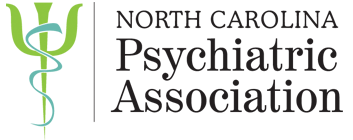- Home
- About
- Foundation
- Advocacy
- Conferences & Events
- Jobs & Classified Ads
- Contact Us
Private Residential Treatment Facilities, It’s Time for a ChangeBy Kim J. Masters, M.D., F.A.C.P., D.F.A.P.A., D.F.A.A.C.A.P.Editor’s Note: At the November 2021 NCPA Executive Council meeting, a member communication was brought before the council that expressed concerns regarding abuse allegations in North Carolina adolescent Psychiatric Residential Treatment Facilities. A series of USA Today articles that was published in several state newspapers highlighted problems in these facilities, including several located in North Carolina. The member’s letter prompted conversation among Executive Council members and the decision was made to appoint a joint task force with the North Carolina Council of Child & Adolescent Psychiatry to address the problem. The Joint Task Force has met several times, including a private meeting with DHHS. Their work is ongoing, and NCPA members will be hearing more from the Task Force in the coming months. Dr. Masters, who does not serve on the task force, offered this opinion. Speaking Out and Speaking Up We all should speak out against the abuse of children and adolescents that is occurring in PRTFs (Psychiatric Residential Treatment Facilities) and group homes. Recent allegations of abuse of patients come from several reports. A USA Today investigation, reported in The Fayetteville Observer, found abuse history in 49 North Carolina PRTFs, including Strategic Behavioral Health in Charlotte and Eliada Homes in Asheville.[i] The Asheville Citizen Times investigated allegations of abuse in Asheville-area PRTFs, Solstice East and Eliada Group Home.[ii] New Yorker Magazine reported on alleged abuses in many Teen Challenge group homes through America, which are “abusive shadow treatment facilities” for those in the juvenile justice system.[iii] Paris Hilton testified in The Washington Post against the Provo Canyon School in Utah.[iv] While the North Carolina Psychiatric Association and the North Carolina Council of Child & Adolescent Psychiatry have a task force addressing the issues, it is important that we all inform ourselves about these abuses and find the proper venues to speak out about them. Abuses of patients have been noted and confronted since at least 1794, when Dr. Philippe Pinel described patients’ abuse by staff. Awareness of these abuses reach the level of public concern about every 25-30 years but attempts to stop the abuses have not been successful. In 1998, for example, the Hartford Courant investigated the death of 110 patients, including children in restraint[v]. The major perpetrators of the abuses most often are the poorly paid mental health staff, technicians, and residential health care specialists, who are responsible for direct care of patients. We should pressure facilities to make changes to recruiting, hiring, and adequately paying these direct care staff. A Plea for Better Staffing Having failed to stop abuse through regulations and training, we ought to deal with the abuse at its source: the line staff, behavioral health care technicians, residential councilors, etc. These are low-paying, high-risk jobs (average pay is 11-14 dollars/hour). Construction workers earn more, as do many other lower-risk employments. The risks are twofold: being assaulted by patients and being terminated and referred to a state agency when a patient or family complains about inappropriate restraint and/or it is observed on video cameras that are present in most residential facilities. These staff members could earn more if they perform the same job in a hospital, because insurance reimburses hospitals at a higher daily rate than PRTFs or group homes. The supervisory capacity of these staff is complicated in PTRFs funded by Medicaid. The mixing of the juvenile justice system’s adolescent patients with those from the social service and mental health system puts a tremendous, if not impossible, load on staff. The result is frequent abuse (sexual, physical, and emotional) and bullying by the juvenile justice patients and staff, often due to their own experience and learned “strategy” in juvenile detention. Who would then take a low wage, high risk job? Often, those who cannot get jobs elsewhere--individuals who experienced the same environmental abuse and low educational opportunities as the patients. This situation would likely cause staff members under stress to abuse patients and override in-service trainings about ‘seclusion and restraint alternatives.’ What Can We Do? I am suggesting that when we psychiatrists work in these PRTFs and group homes, we should: • Be involved in advocating for higher pay, and in promoting/hiring of behavioral line staff with the educational and emotional background to help patients. • Promote line staff interactions (instead of just watching and recording) with patients in the form of DBT-S type social skills groups. I recommend Marsha Linehan’s DBT Skills Training Manual, Second Edition.[vi] This manual and workbook is structured into four groups of mindfulness, interpersonal effectiveness, emotional regulation, and distress tolerance skills. • Promote other evidenced based treatments in PTRFs and group homes, instead of coercive, group consequence and made up abusive ‘treatments.’ • Watch video clips of restraints and seclusions of all patients who undergo these procedures. • Support the involvement of families in the care of their children in PTRFs, Guardian ad litem, and social workers. References [i] https://www.fayobserver.com/in-depth/news/2021/11/08/investigation-uncovers-treatment-failures-inside-mental-health-facilities-for-youth/8581506002/ [ii] https://www.citizen-times.com/story/news/2021/03/04/solstice-east-teen-abuse-allegations-arise-state-former-clients/6868303002/ (Paywalled) [iv] https://www.washingtonpost.com/opinions/2021/10/18/paris-hilton-child-care-facilities-abuse-reform [v] https://www.charlydmiller.com/LIB05/1998hartforddata.html and https://www.courant.com/news/connecticut/hc-xpm-1998-10-11-9810090779-story.html [vi] https://www.amazon.com/DBT%C2%AE-Skills-Training-Manual-Second/dp/1462516998/ref=sr_1_4?crid=1V3370VNR4H0M&keywords=marsha+linehan&qid=1644869271&sprefix=marsha+lin%2Caps%2C192&sr=8-4 Additional reports and resources: https://www.sltrib.com/news/2020/09/20/provo-canyon-schools/ https://www.youthrights.org/issues/medical-autonomy/the-troubled-teen-industry/
|
